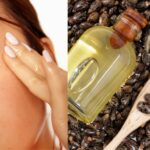Hyaluronic acid is a powerhouse ingredient in skincare, celebrated for its ability to retain moisture and promote plump, hydrated skin. While it’s naturally present in our bodies, age, environmental factors, and lifestyle choices can lead to its decline. The good news is that you can boost hyaluronic acid levels in your skin naturally without relying solely on store-bought serums. Here are five effective ways to enhance your skin’s hydration and health.
1. Eat a Hyaluronic Acid-Boosting Diet
Your diet plays a significant role in maintaining healthy skin. By consuming foods that naturally promote hyaluronic acid production, you can enhance your skin’s ability to retain moisture.
Foods to Include:
- Bone Broth: A rich source of collagen and hyaluronic acid. Sipping on bone broth regularly can provide your skin with essential building blocks for hydration.
- Leafy Greens: Spinach, kale, and other greens are high in magnesium, a mineral that supports the synthesis of hyaluronic acid.
- Citrus Fruits: Oranges, lemons, and grapefruits are rich in vitamin C, which is essential for collagen production and enhances hyaluronic acid levels.
- Soy-Based Foods: Soybeans, tofu, and tempeh contain isoflavones, which may help maintain skin’s hyaluronic acid levels.
Tip:
Drink plenty of water alongside these foods to maximize their hydrating effects.
2. Use Natural Ingredients Topically
Applying natural ingredients directly to your skin can help replenish its hyaluronic acid levels and lock in moisture. Many everyday kitchen staples have powerful hydrating properties.
Ingredients to Try:
- Aloe Vera Gel: Aloe vera is rich in polysaccharides that mimic the effects of hyaluronic acid. Apply pure aloe vera gel as a hydrating mask or base layer before moisturizer.
- Honey: A natural humectant, honey draws moisture into the skin. Use it as a face mask or mix it with aloe vera for added benefits.
- Cucumber: Packed with water and silica, cucumber is excellent for hydration. Blend cucumber into a paste and apply it as a cooling face mask.
DIY Hydration Mask Recipe:
Mix 2 tablespoons of aloe vera gel, 1 teaspoon of honey, and a few drops of rose water. Apply this mixture to your face, leave it on for 15-20 minutes, and rinse with lukewarm water.
3. Stay Active with Skin-Boosting Exercises
Regular exercise improves blood circulation, delivering oxygen and nutrients to your skin. This boosts the production of hyaluronic acid and other essential compounds.
Types of Exercise:
- Facial Yoga: Specific movements and massages can stimulate your skin and promote natural hyaluronic acid production.
- Aerobic Workouts: Activities like running, dancing, or brisk walking increase circulation and encourage your body to regenerate cells, including those in your skin.
Facial Massage Tip:
Use gentle, upward strokes while applying a natural oil (like jojoba or almond oil) to enhance blood flow and support hydration.
4. Protect Your Skin from Damage
Environmental factors like UV radiation and pollution can deplete your skin’s natural hyaluronic acid levels. Taking steps to protect your skin can prevent premature loss of hydration.
How to Protect:
- Wear Sunscreen: Use a broad-spectrum sunscreen with natural ingredients like zinc oxide to shield your skin from harmful rays.
- Stay Hydrated: Drinking plenty of water ensures your skin stays plump and moisturized.
- Use Antioxidants: Apply skincare products with natural antioxidants like vitamin E and green tea to combat free radical damage.
DIY Green Tea Toner:
Brew green tea and let it cool. Pour it into a spray bottle and mist your face daily to refresh your skin and fight oxidative stress.
5. Incorporate Gentle Skincare Practices
Harsh skincare products and aggressive routines can strip your skin of its natural moisture, reducing hyaluronic acid levels. Adopt gentle and nourishing practices to support your skin’s health.
Tips for Gentle Skincare:
- Use Mild Cleansers: Choose sulfate-free cleansers to avoid stripping your skin’s natural oils.
- Exfoliate Sparingly: Opt for natural exfoliants like oatmeal or rice powder no more than twice a week to maintain your skin’s protective barrier.
- Moisturize Regularly: Lock in moisture with a natural, hyaluronic acid-friendly moisturizer. Look for ingredients like shea butter or squalane.
Evening Skincare Routine:
- Cleanse with a gentle, hydrating cleanser.
- Apply a natural toner like rose water.
- Use aloe vera gel or a DIY mask for extra hydration.
- Finish with a nourishing moisturizer or facial oil.
Boosting your skin’s hyaluronic acid levels naturally is about embracing a holistic approach. From eating the right foods to adopting gentle skincare practices, these simple steps can make a big difference in how your skin looks and feels. Not only will your skin glow with hydration, but you’ll also be nurturing your overall health and well-being.
By integrating these practices into your daily routine, you’ll be well on your way to healthier, more radiant skin—naturally and sustainably.











